In this article:
Summertime is known for its hot, humid days, ice cream carts, vacation days – and annoying mosquito bites.
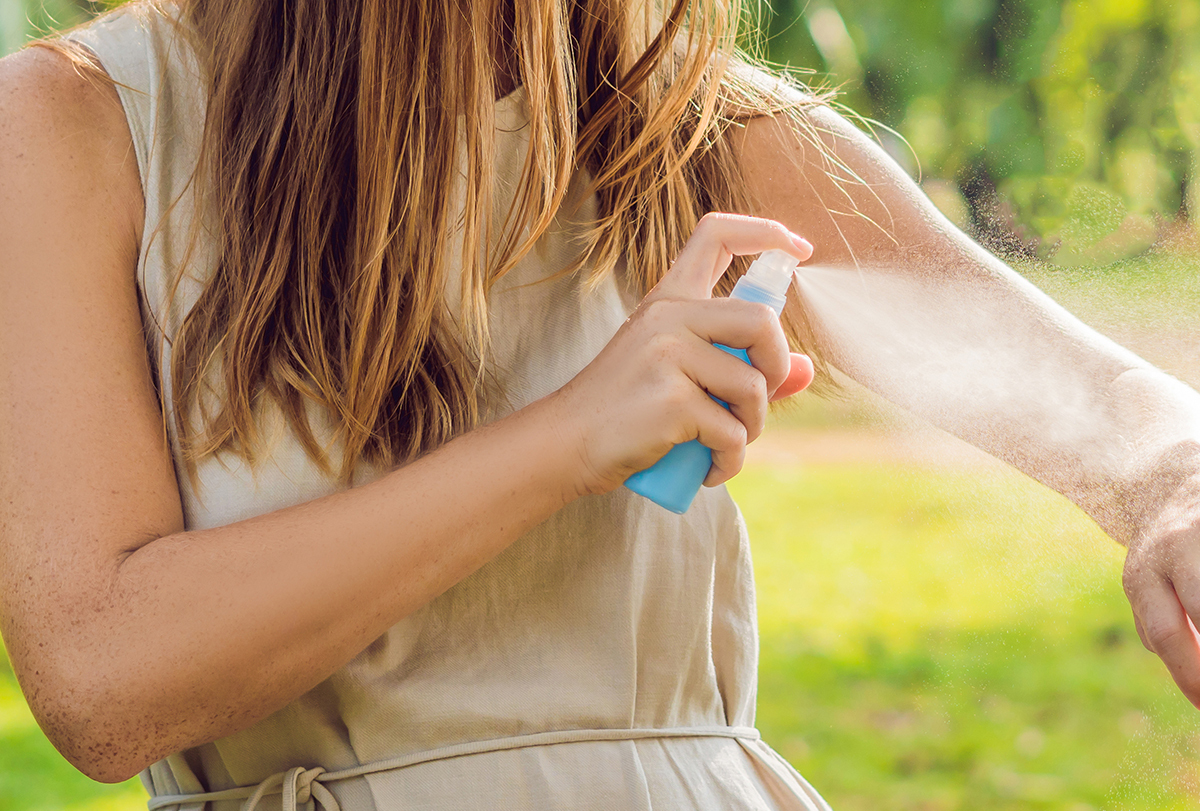
Mosquito bites are itchy and irritating; worse, they can spread quite a few diseases, including dengue, malaria, and encephalitis, to name a few. (1)
The chemical insect repellants found in stores are usually not safe to use every day, particularly for children. They can also have harmful side effects if used in excess.
This article will present safe natural insect repellents that you can use daily to keep mosquitoes away. (2)
Natural Mosquito Repellents and How to Use Them
Natural insect repellents are usually derived from plant oils. Though they are not as strong as chemical commercial repellents, they can provide moderate protection for a shorter amount of time.
1. Lemon eucalyptus extract/oil
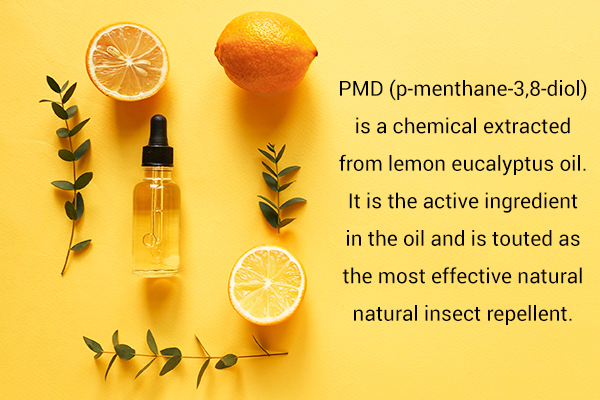
PMD (p-menthane-3,8-diol) is the active ingredient of lemon eucalyptus (Corymbia citriodora) oil. It is touted as the most effective natural insect repellent by the Centers for Disease Control and Prevention (CDC).
The Journal of American Mosquito Control Association reports that 32% lemon eucalyptus oil can keeps mosquitoes at bay for more than 3 hours. (3) However, it is a potent oil and should not be used in children under 3 years of age. (4)
How to use:
- Add 6–7 drops of lemon eucalyptus oil to a few teaspoons of witch hazel.
- Pour the solution into a spray bottle and spray it onto your pulse points.
- Repeat every 3–4 hours.
2. Citronella
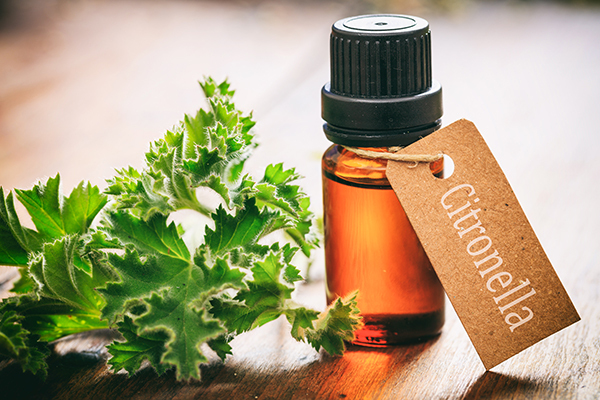
Citronella oil is extracted from the plant Cymbopogon nardus and is another very effective mosquito repellent. Citronella oil can be as strong as DEET according to some experts.
Citronella-infused candles, vaporizers, insect repellent sprays, etc., are very commonly found on the market. (5)
How to use:
- Fill a spray bottle with water, and add 10–15 drops of citronella oil to it. Spray this solution on windows, doors, etc. You can also spray it on your skin.
- You may light citronella candles also.
Note: Always use a 5%–10% concentration of citronella oil as higher concentrations can be irritating to the skin.
3. Catnip
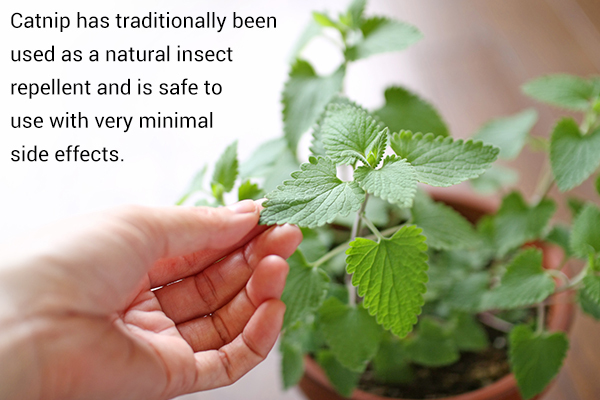
Catnip is a common herb found in many places. It has traditionally been used as a natural insect repellent and is safe to use with very minimal side effects. (6)
How to use:
- Make holes in Ziploc bags using pins or use bags made of net. Store fresh catnip leaves in these bags and place them around the house. Change the leaves every couple of days.
- Boil 1 tablespoon of crushed catnip leaves in 1 cup of water. Let the solution cool, and then spray it around the house.
4. Indian lilac (neem)
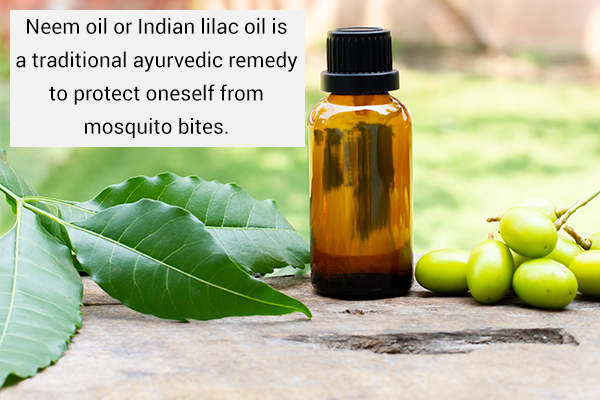
Neem oil or Indian lilac oil is a traditional Ayurvedic remedy to protect oneself from mosquito bites. It is a natural insecticide and is considered to be an alternative to DEET. (7)
While neem has minimal side effects, it can cause skin irritation in some people and should be diluted with a carrier oil before use. (8)
How to use:
- Mix 15–20 drops of neem oil in 20 ml of coconut oil.
- Spray the solution over all exposed skin such as your arms, hands, legs, and feet.
- This oil can work well for 7–8 hours after applying.
5. Peppermint
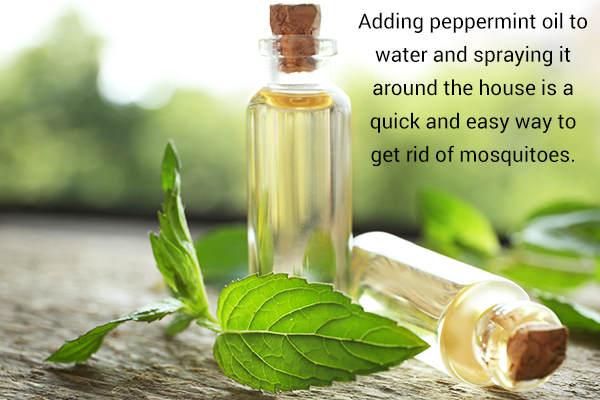
Peppermint fragrance drives away mosquitoes naturally. Adding peppermint oil to water and spraying it around the house is a quick and easy way to get rid of mosquitoes. You can also apply peppermint oil to your skin to prevent mosquito bites before stepping out.
A recent study published in the Asian Pacific Journal of Tropical Biomedicine has found peppermint oil to be effective in killing mosquito larvae as well. (9)
How to use:
- Pour ½ cup of water into a spray bottle.
- Add 20–30 drops of peppermint oil and 1 teaspoon of witch hazel to it.
- Spray the solution around the house.
6. Lemongrass
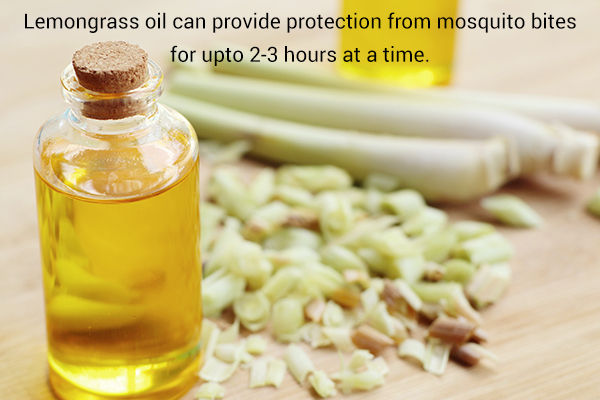
Lemongrass oil can provide protection from mosquito bites for up to 2–3 hours and is effective against multiple species of mosquitoes. However, lemongrass oil should be used carefully as some people may experience allergic reactions to it. (10)
How to use:
- Fill a spray bottle with a few tablespoons of witch hazel.
- Add 15–20 drops of lemongrass oil to it.
- Spray the solution on all exposed areas of your skin.
Make sure to perform a patch test first to confirm you are not allergic to lemongrass oil.
7. Thyme
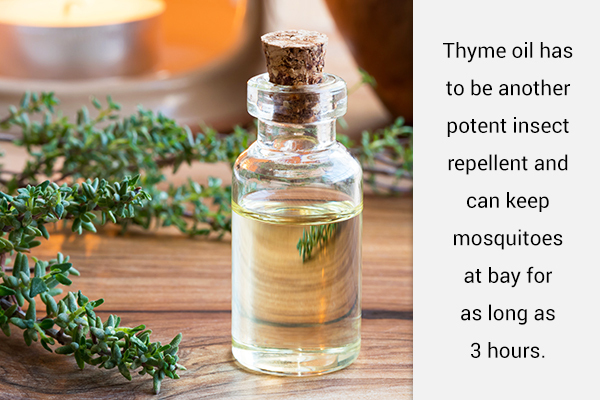
Thyme oil is another potent insect repellent and can keep mosquitoes away for as long as 3 hours. It has minimal side effects except for minor skin irritation.
A study showed that thyme oil was effective against mosquito species responsible for spreading yellow fever, malaria, and filariasis. (11)
How to use:
- Add 4–5 drops of thyme oil to 4 tablespoons of water.
- Pour this solution into a spray bottle and spray it all around the house.
- You can also spray it on exposed skin.
8. Cinnamon
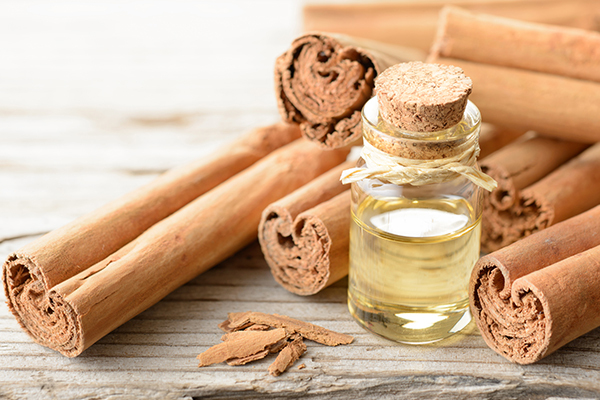
Cinnamon oil is a strong insecticide. One study revealed that it can effectively kill mosquito larvae as well as repel mosquitoes. (12)
How to use:
- Add 1 teaspoon of cinnamon oil to 1½ cup of water.
- Pour the solution into a spray bottle and spray it on your clothes and around the house.
9. Clove oil
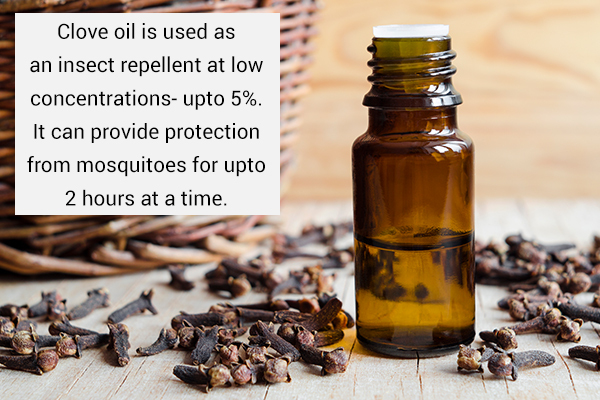
Clove oil is used as an insect repellent at low concentrations of up to 5%. It can provide protection from mosquitoes for as long as 2 hours. (13)
Clove oil when used alone can irritate the skin; thus, it should always be diluted with water or a carrier oil. (14)
How to use:
- Mix 1 teaspoon of clove oil in 10 teaspoons of water.
- You can add a few drops of thyme oil or citronella oil to this solution if you want to.
- Pour the solution into a spray bottle and spray it on exposed skin and around your house.
10. Holy basil
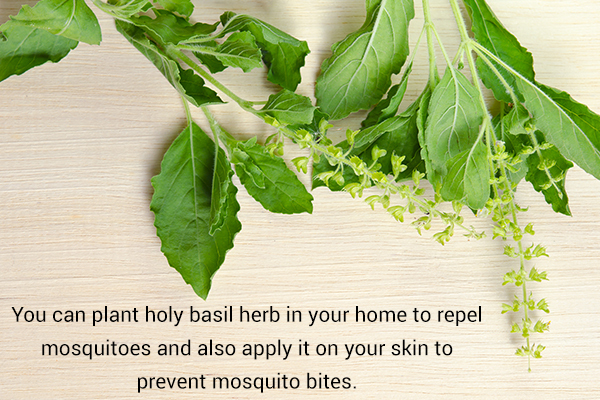
Holy basil, also known as tulsi in Ayurvedic literature, is a powerful insect killer. You can plant this herb in your home to repel mosquitoes and also apply it to your skin to prevent mosquito bites. (15)
How to use:
- Boil a few fresh basil leaves in ½ a cup of water and let them steep for a few hours.
- After cooling, strain the liquid and pour it into a spray bottle.
- Add a few teaspoons of witch hazel to this solution.
- Spray the solution on your skin or around the house to repel mosquitoes.
Preventative Tips Against Mosquito Bites
Here are some additional tips to prevent mosquito bites:
- Install mosquito nets around beds to prevent mosquito bites while sleeping.
- Make sure to check your house and surroundings for any standing water and discard it. Any water-holding place such as tubs, trashcans, and flowerpots can become a breeding ground for mosquitoes.
- Wear long-sleeved clothes to protect your arms and legs from insect bites.
- Consult a doctor immediately if you feel feverish, have body aches, or develop rashes after a mosquito bite. It could be a sign of an infection.
Most-Asked Questions About Mosquito Repellents
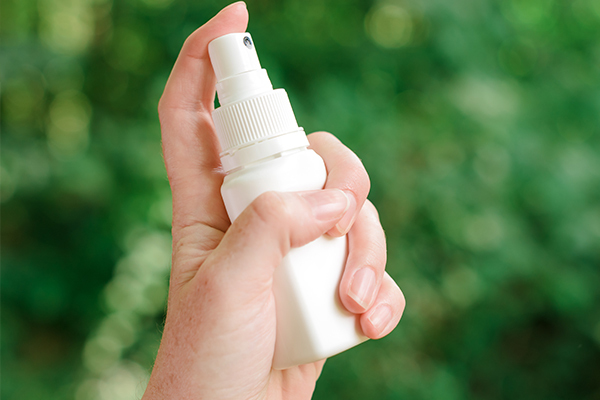
Does a homemade mosquito repellent also keep other bugs away?
Yes, most mosquito repellents repel all kinds of bugs: spiders, flies, etc.
Which is better, a natural insect repellent or DEET?
DEET and natural insect repellents are both effective ways to prevent mosquito bites. However, natural repellents are not as effective and long-lasting as DEET. They need to be reapplied regularly for best results.
DEET, on the other hand, is a strong repellent but can have side effects if used too often or on small children. Natural repellents are mostly safe to use with minimal side effects.
Final Word
There are many natural repellents you can try to prevent insect bites. You can use them to protect yourself and your home from mosquitoes without any fear of side effects.
However, if you live in an area with lots of mosquitoes, it is best to use DEET as an insect repellent. DEET offers long-term protection from mosquitoes.
- Was this article helpful?
- YES, THANKS!NOT REALLY


